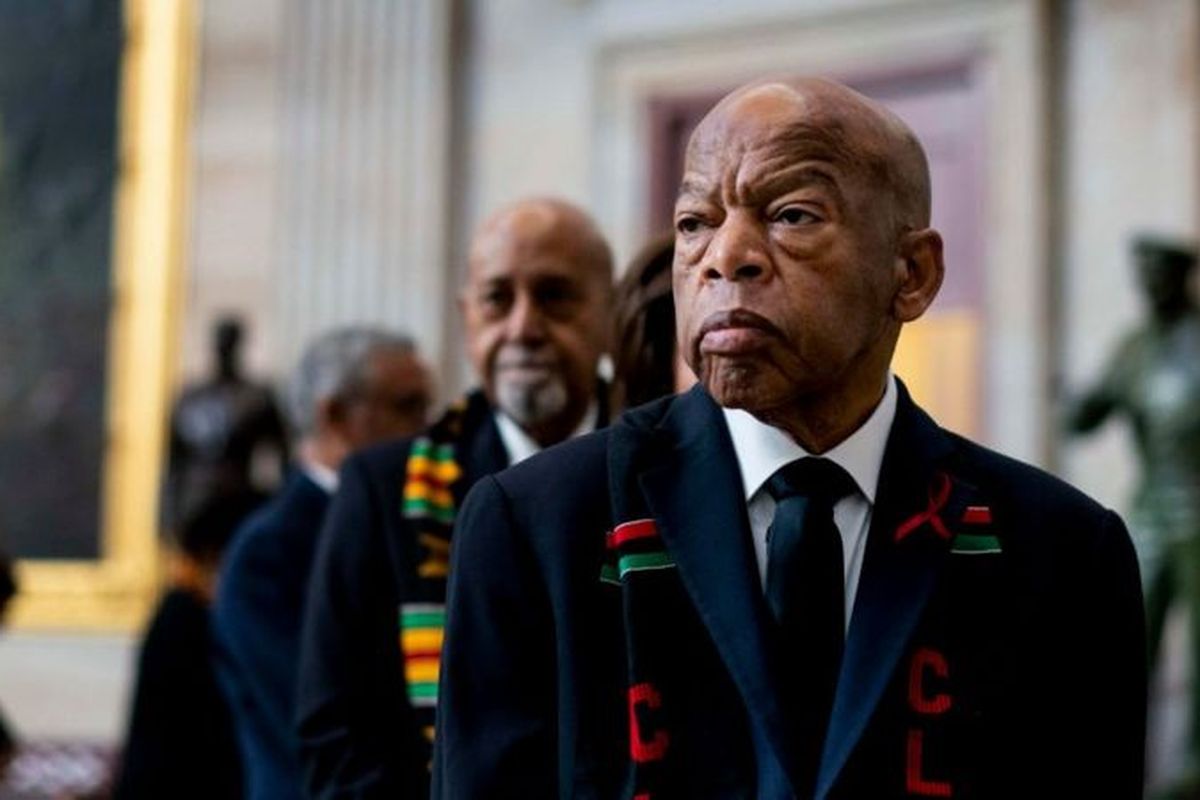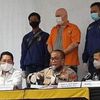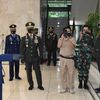Leading Figure of US Civil Rights Movement John Lewis Dead at 80

A 23-year-old firebrand, Lewis toned down his intended remarks at the insistence of others, dropping a reference to a “scorched earth” march through the South and scaling back criticisms of President John Kennedy.
It was a potent speech nonetheless, in which he vowed: “By the forces of our demands, our determination and our numbers, we shall splinter the segregated South into a thousand pieces and put them together in an image of God and democracy.”
It was almost immediately, and forever, overshadowed by the words of King, the man who had inspired him to activism.
Lewis was born on Feb. 21, 1940, outside the town of Troy, in Pike County, Alabama. He grew up on his family’s farm and attended segregated public schools.
As a boy, he wanted to be a minister, and practiced his oratory on the family chickens.
Denied a library card because of the color of his skin, he became an avid reader, and could cite obscure historical dates and details even in his later years.
He was a teenager when he first heard King preaching on the radio.
They met when Lewis was seeking support to become the first Black student at Alabama’s segregated Troy State University.
He ultimately attended the American Baptist Theological Seminary and Fisk University in Nashville, Tennessee.
He began organizing sit-in demonstrations at whites-only lunch counters and volunteering as a Freedom Rider, enduring beatings and arrests while traveling around the South to challenge segregation.
Lewis helped found the Student Nonviolent Coordinating Committee and was named its chairman in 1963, making him one of the Big Six at a tender age.
The others, in addition to King, were Whitney Young of the National Urban League; A. Philip Randolph of the Negro American Labor Council; James L. Farmer Jr., of the Congress of Racial Equality; and Roy Wilkins of the NAACP.
All six met at the Roosevelt Hotel in New York to plan and announce the March on Washington.
The huge demonstration galvanized the movement, but success didn’t come quickly.
After extensive training in nonviolent protest, Lewis and the Rev. Hosea Williams led demonstrators on a planned march of more than 50 miles (80 kilometers) from Selma to Montgomery, Alabama’s capital, on March 7, 1965.
A phalanx of police blocked their exit from the Selma bridge.
Authorities shoved, then swung their truncheons, fired tear gas and charged on horseback, sending many to the hospital and horrifying much of the nation. King returned with thousands, completing the march to Montgomery before the end of the month.
Lewis turned to politics in 1981, when he was elected to the Atlanta City Council.
He won his seat in Congress in 1986 and spent much of his career in the minority.
After Democrats won control of the House in 2006, Lewis became his party’s senior deputy whip, a behind-the-scenes leadership post in which he helped keep the party unified.
In an early setback for Barack Obama’s 2008 Democratic primary campaign, Lewis endorsed Hillary Rodham Clinton for the nomination.
Lewis switched when it became clear Obama had overwhelming Black support.


































